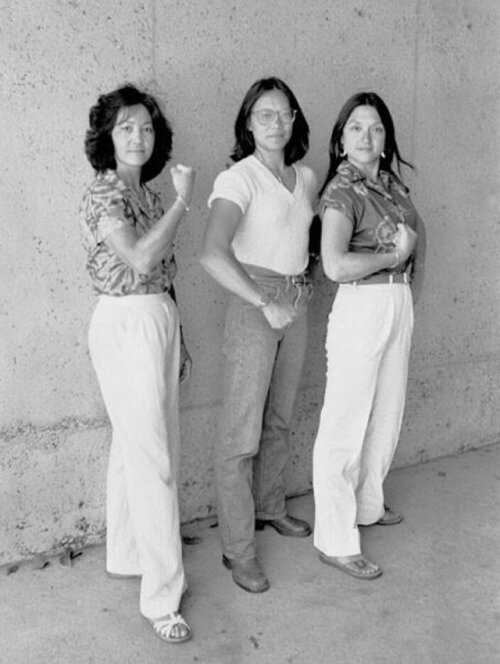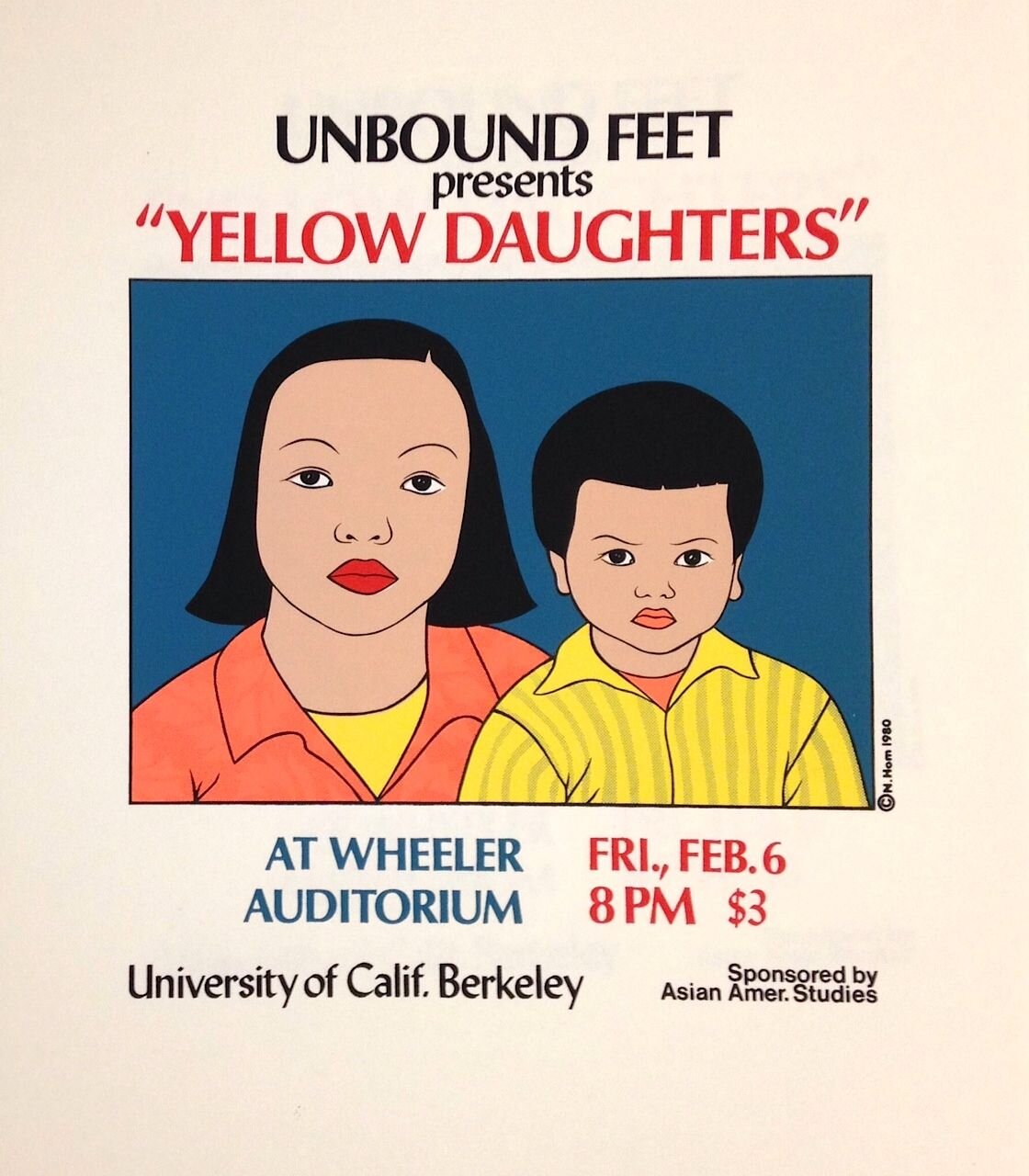On Unbound Feet: the 1970’s Feminist Performance Group
Unbound Feet were a feminist performance group in 1979. It led to a lot of social change and brought a community amongst queer women in San Francisco. They explored sexist and racist oppression in society when it comes to immigration, family, etc. Their work broke down walls and went against stereotypes. Most of the information I’ve gathered is from the book LGBTQ America: A Theme Study of Lesbian, Gay, Bisexual, Transgender, and Queer History, more specifically the chapter by Amy Sueyoshi titled “Breathing Fire: Remembering Asian Pacific American Activism in Queer History.”
The six original members are Kitty Tsui (1952-), Merle Woo (1941-), Canyon Sam, Nellie Wong (1934-), Genny Lim (1946-), Nancy Hom. Tsui and Sam had met at Asian American Feminists (Asian women’s rap group initiated in 1977 by Doreena Wong and Canyon Sam). Sam was the youngest member at only 23-years-old when the group was formed. This was revolutionary as there were very few Asian American women on stage. The name is in reference to the ancient Chinese practice of foot binding, which altered the foot’s shape and became a symbol of status and beauty.
Their first show was at the James Moore Oakland Museum Theatre. They grew widely popular with audiences of up to 600. Though the program explicitly stated their sexuality, Tsui, Woo, and Sam did not address their lesbianism. The group brought representation and solidarity of lesbians in the community.
Zee Wong’s home would be a gathering place and meeting place for lesbians of color as she was a master at party planning with a wide network. This would begin a series of Asian lesbian potlucks. The group disbanded in 1981 as Merle Woo had a conflict with the University of California Berkeley, who refused to renew her contract as a lecturer in Asian American Studies. She hoped that Unbound Feet would publicly support her, but they could not reach an agreement if they should make a public statement.
In 1985, three original members regrouped as Unbound Feet Three as they actively brought lesbian content to the stage. They also drew audiences to their performances, specifically queer Asians from across the country, to gather in Washington DC at the first National Third World Lesbian and Gay Conference. The National Coalition of Black Gays organized this in October 1979 at Howard University. According to Michiyo Cornell (later Michiyo Fukaya), it was “the first time in the history of the American hemisphere that Asian American gay men and lesbians joined to form a network of support.” Fukaya later organized Vermont’s first queer pride celebration called “Lesbian and Gay Pride” in 1983.
In 1987, the first West Coast Asian Pacific Lesbian Retreat in Sonoma, California, was organized by Asian lesbian and bisexual women. The first Asian American lesbian newsletter was titled Phoenix Rising and began in the mid-1980s. Its title referenced women’s resilience and beauty, rising out of the ashes that racism, sexism, and homophobia might otherwise leave behind. It served as a lifeline for Helen Zia, a community organizer who hid her lesbianism while living in New Jersey. It became a symbol of how all her identities as a woman, Asian, and lesbian could co-exist.
Kitty Tsui also published her poetry book in 1983 titled The Words of a Woman Who Breathes Fire which has inspired countless queer Asian women across two decades. She also took up bodybuilding and won bronze in 1986 and gold in 1990 at Gay Games I and II in San Francisco and Vancouver. Queer writers of color also initiated their own printing houses like Kitchen Table: Women of Color Press, founded by Black lesbians Barbara Smith and Audre Lorde in 1980.
In 2017, four of the six members (Genny Lim, Kitty Tsui, Nellie Wong, and Canyon Sam) did a reunion poetry reading.


